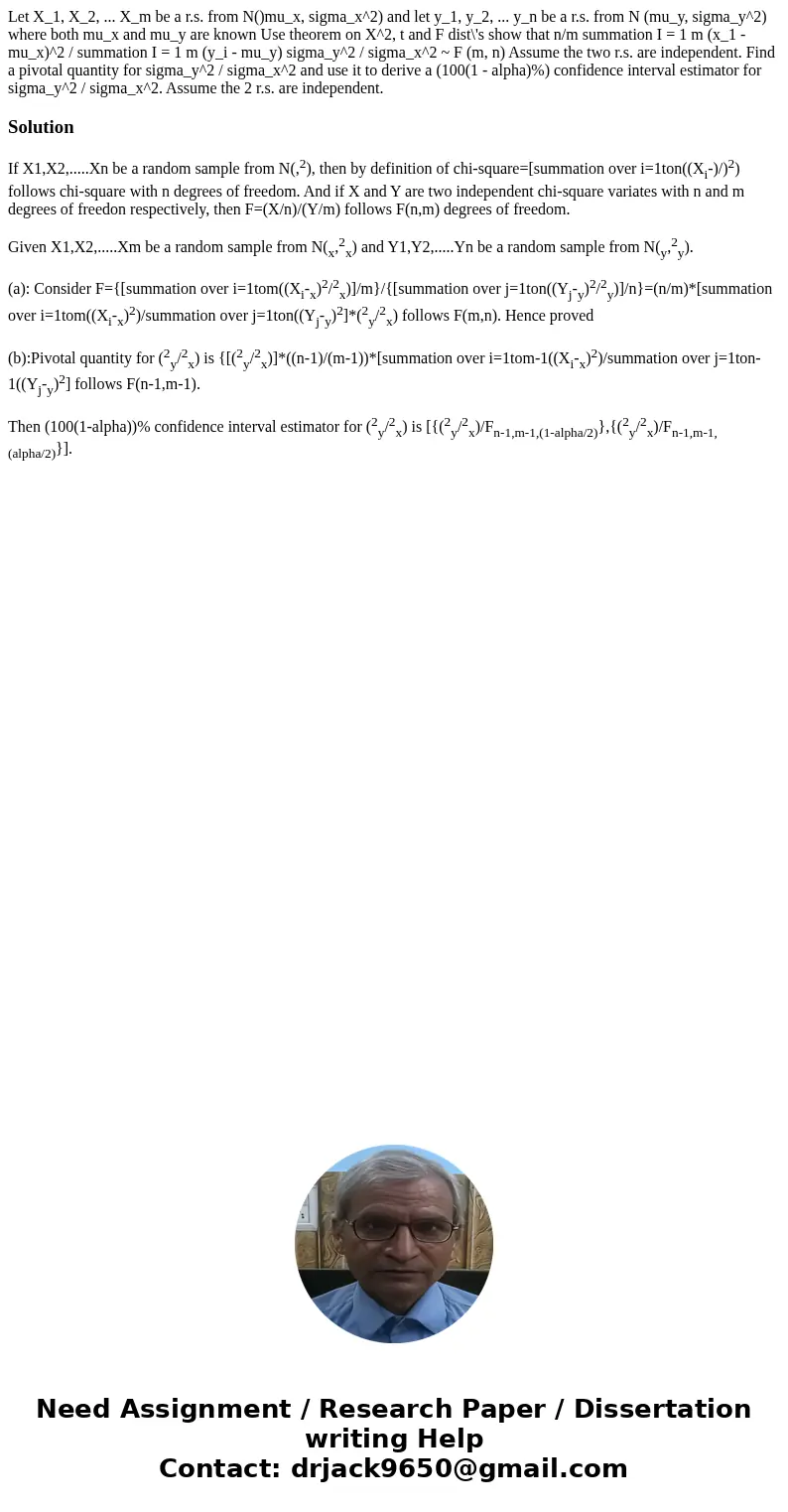Let X1 X2 Xm be a rs from Nmux sigmax2 and let y1 y2 yn be
Solution
If X1,X2,.....Xn be a random sample from N(,2), then by definition of chi-square=[summation over i=1ton((Xi-)/)2) follows chi-square with n degrees of freedom. And if X and Y are two independent chi-square variates with n and m degrees of freedon respectively, then F=(X/n)/(Y/m) follows F(n,m) degrees of freedom.
Given X1,X2,.....Xm be a random sample from N(x,2x) and Y1,Y2,.....Yn be a random sample from N(y,2y).
(a): Consider F={[summation over i=1tom((Xi-x)2/2x)]/m}/{[summation over j=1ton((Yj-y)2/2y)]/n}=(n/m)*[summation over i=1tom((Xi-x)2)/summation over j=1ton((Yj-y)2]*(2y/2x) follows F(m,n). Hence proved
(b):Pivotal quantity for (2y/2x) is {[(2y/2x)]*((n-1)/(m-1))*[summation over i=1tom-1((Xi-x)2)/summation over j=1ton-1((Yj-y)2] follows F(n-1,m-1).
Then (100(1-alpha))% confidence interval estimator for (2y/2x) is [{(2y/2x)/Fn-1,m-1,(1-alpha/2)},{(2y/2x)/Fn-1,m-1,(alpha/2)}].

 Homework Sourse
Homework Sourse